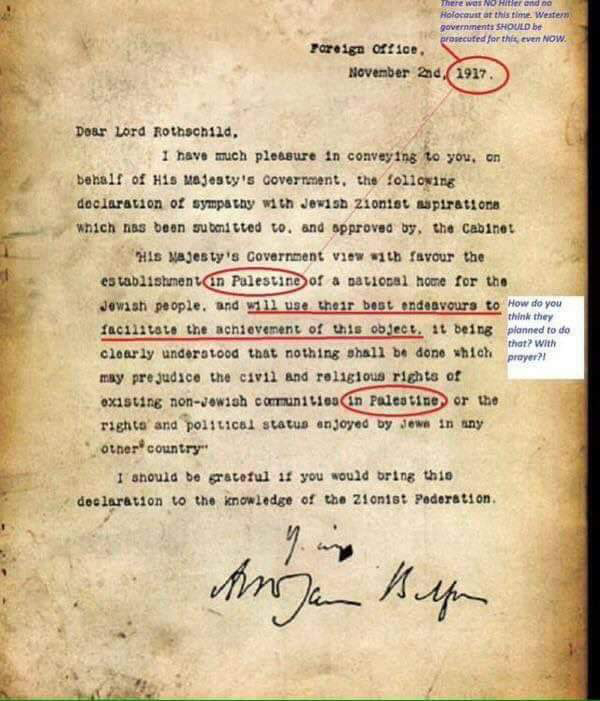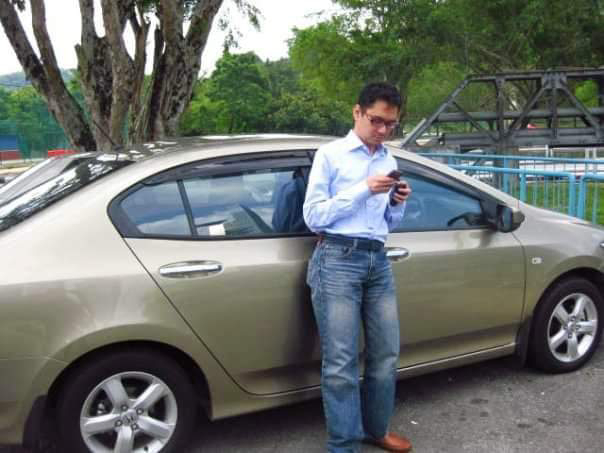When I was a teenager in the mid 90s, I read 'A History of Middle East' by Peter Mansfield.
I remember it a was a hard cover book with a light blue illustration of several men on camels in the dessert. It was the first published edition.
From that book, I first learnt about the Balfour Declaration 1917.
I may not have full recollection about the Balfour Declaration I read back then nor do I still have the book, but last night, I summarized and compiled the journey of the on going resistance by the Palestinians.
In 1915, the Zionist movement that was founded in 1896, was lobbying Western powers to support the mass migration of Jews to Palestine and to recognise a Jewish claim to the land.
Zionism was a settler colonialist movement that was running away from the persecutions in Europe.
it wanted as much Palestinian lands as possible with as few Palestinians in it as possible.
This was the aim of it in the late 19th century and this is the aim of Zionism, today.
The emergence of Zionism as a political ideology in late 19th-century Eastern Europe gave seed to the process. The ideology is based on the belief that Jews are a nation or a race that deserve their own state.
The idea of a Jewish homeland (Jewish state) was crafted in 1896, by a Viennese journalist, Theodor Herzl. He mooted this as a solution to a centuries-old anti-Semitic sentiments and attacks in Europe.
Palestine was chosen based on the biblical concept that the Holy Land was promised to the Jews by God.
The old city of Jerusalem, Palestine
Under the Ottoman empire, Muslim, Christian, and Jewish communities of Palestine were allowed to exercise jurisdiction over their own members according to charters granted to them. For centuries the Jews and Christians had enjoyed a large degree of communal autonomy in matters of worship, jurisdiction over personal status, taxes, and in managing their schools and charitable institutions.
By the end of the 19th century, Palestine had 500,000 inhabitants, of whom 30,000 lived in Jerusalem. Jews formed half the population of Jerusalem, and in the country close to 5%. while Christians accounted for 10% and Muslims 85%.
Chaim Weizmann, a Britain-based Russian Zionist lobbied hard for more than two years to then-British Prime Minister David Lloyd-George and Foreign Ministerat that time, Arthur James Balfour to publicly commit Britain to building a homeland for the Jews in Palestine.
In 1917, the Balfour Declaration declared British support for a “national home for the Jewish people” in Palestine.
The declaration was made in a letter written on 2nd November 1917, by Britain's then-Foreign Secretary Arthur James Balfour, to Baron Walter Rothschild, a leader of the British Zionist movement. The letter was endorsed by Britain's then-Prime Minister David Lloyd George.
The letter stated the British would “use their best endeavours to facilitate the achievement of this objective".
The November 1917 letter to the Zionist movement committed Britain to support the establishment of a “Jewish national home” in Palestine. Through that document, the world’s pre-eminent power gave its backing to a project aimed at colonising with European Jews a land where most of the populations were Arabs. .
British writer, Arthur Kieslee summarised it as a document in which ‘one nation solemnly promised to a second nation the country of a third’.
Ruling the Palestine region for more than 400 years, the Ottomans fought fiercely to keep the ancient lands during World War I but eventually lost them to the British.
On the night of Dec. 10, 1917. Ottoman troops withdrew from Jerusalem .
The next morning, on Dec 11, 1917, the British occupied Palestine as part of the secret Sykes-Picot treaty of 1916 between Britain and France to divide up the Middle East for imperial interests.
Once British occupied Palestine in December 1917, the colonial power began implementing its plan of creating a Jewish state on Palestinian land.
"A Jewish state will be for England a little loyal Ulster in a sea of potentially hostile Arabism." - Sir Ronald Storrs, 1917 - who described himself as ‘the first military governor in Palestine since Pontius Pilate’
From 1919 onwards, Zionist immigration to Palestine, facilitated by the British, increased dramatically. Weizmann, who later became Israel's first president, was realising his dream of making Palestine "as Jewish as England is English".
The influx of Zionists to Palestine, supported by the British, was met by fierce Palestinian resistance. The purchases of land by Jews from absentee landlords for Zionist settlement displaced tens of thousands of Palestinians from their homes. The entire process was facilitated by the British.
In July 1920 a British civilian administration headed by a High Commissionerm replaced the military administration. The first High Commissioner, Herbert Samuel, a Zionist and a recent British cabinet minister, arrived in Palestine on 20 June 1920 to take up his appointment from 1 July.
Faced with unrest and Palestinians' resistance in1921, Herbert Samuel the first high commissioner of Palestine, ordered air strikes against Palestinian rioters and declared a state of emergency.
Between 1922 and 1935, the Jewish population rose from nine percent to nearly 27 percent of the total population, displacing tens of thousands of Palestinian tenants from their lands as Zionists bought land from absentee landlords.
With the Nazi seizure of power in Germany between 1933 and 1936, 30,000 to 60,000 Ashkenazi European Jews arrived on the shores of Palestine.
In 1933, a contingent of foot police broke a demonstration in Jaffa by the Palestinians which had been banned. Numerous Palestinians were shot dead during the protest.
British military commanders were assured that they could take whatever measures are necessary. The measures were to include demolishing much of Jaffa’s old city, imposing collective punishment on villages with rebels in their midst and mass detention in labour camps.
A 1938 photo in Jerusalem whereby Bitish occupation forces arresting sheikhs and leaders of the revolutionaries resisting the British-Zionist plan to estanlish a Jewish state in Palestine territories.
Izz Al Din Al Qassam 1882-1935
While the Palestinian leadership in Jerusalem insisted on continuing negotiations with the British to resolve the simmering tensions, a Syrian leader living in Haifa, Izz Al-Din Al-Qassam began calling for an armed revolt against the British and the Zionists.
In November 1935, Al-Qassam was surrounded by British forces and killed along with some of his men.
His resistance inspired many Palestinians.
An article in a Palestinian newspaper that P about the British Zionist conspiracy titled Zionism Crocodile
By 1936, an Arab rebellion erupted against British imperialism and Zionist settler-colonialism. Palestinian Arabs revolted until 1939.
The British crushed the revolt violently; they destroyed at least 2,000 Palestinian homes, put 9,000 Palestinians in concentration camps and subjected them to violent interrogation, including torture, and deported 200 Palestinian nationalist leaders.
At least ten percent of the Palestinian male population had been killed, wounded, exiled or imprisoned by the end of the revolt.
The Balfour Declaration’s purpose that was to form a “little loyal Jewish state in a sea of potentially hostile Arabism”, according to Ronald Storrs, “the first military governor of Palestine.
But not everything went according to plan, the Zionist movement fell out with and waged a campaign of guerilla warfare against Britain.
Although the British had backed mass Jewish immigration to Palestine, the colonial power began to limit the number of Jews arriving to the country in an attempt to quell Arab unrest.
The new limit on immigration upset the Zionists. They launched a series of terrorist attacks on British authorities to drive them out.
By 1939, the Palestinians found themselves fighting two enemies: British colonial forces and Zionist militia groups.
As Zionist attacks on the British and Arabs escalated, the British decided to hand over their responsibility for Palestine to the newly founded United Nations.
In November 1947, the UN General Assembly proposed a plan to partition Palestine into a Jewish state and an Arab one. Jews in Palestine only constituted one-third of the population – most of whom, the Ashkenazi Jews had arrived from Europe a few years earlier – and only retained control of less than 5.5 percent of historic Palestine.
Yet under the UN proposal, they were allocated 55 percent of the land. The Palestinians and their Arab allies rejected the proposal.
The Zionist movement accepted it however, on the grounds that it legitimised the idea of a Jewish state on Arab land. But the Zionists did not agree to the proposed borders, and campaigned to conquer even more of historic Palestine.
By early 1948, Zionist forces had captured dozens of villages and cities, displacing thousands of Palestinians, even while the British Mandate was still in effect.
In many cases, they carried out organised massacres. The Zionist movement’s message was simple: Palestinians must leave their land or be killed.
As the date (May 14, 1948) selected by the British for their Palestine Mandate to expire approached, Zionist forces hastened their efforts to seize Palestinian land.
In April 1948, the Zionists captured Haifa, one of the biggest Palestinian cities, and subsequently set their eyes on Jaffa.
On May 14, 1948, British ended its mandate on Palestine.
David Ben-Gurion, then-head of the Zionist, proclaimed the establishment of the state of Israel. British forces formally withdrew, leaving behind their tanks and armoured weapons to the newly created state of Israel.
Zionists argued that Israel would provide a safe national home for Jews, allowing any Jewish person from anywhere in the world to immigrate there and claim citizenship.
The transition was marked in a low-key ceremony at which Alan Cunningham, the last British high commissioner in Jerusalem, inspected a colour party.
Cunningham had been in charge during the mass expulsion of Palestinians by Zionist forces, an episode called the Nakba or catastrophe. The British authorities chose not to intervene.
Overnight, the Palestinians became stateless. The world’s two great powers, the United States and the Soviet Union (Bolshevik Jews) , immediately recognised Israel.
As the Zionists continued their ethnic cleansing campaign against the Palestinians, war broke out between neighbouring Arab countries and the new illegal Zionist state.
The UN appointed Swedish diplomat, Folke Bernadotte, as its mediator to Palestine. He recognised the plight of the Palestinians and attempted to address their suffering. His efforts to bring about a peaceful solution and halt to the ongoing ethnic cleansing campaign ended when he was assassinated by the Zionists in September 1948.
By 1949, over 700,000 Palestinians had been made refugees and more than 13,000 had been killed by the Israeli military. The UN continued to push for an armistice deal between Israel and those Arab countries with whom the Zionist illegal state was at war.
Bernadotte was replaced by his American deputy, Ralph Bunche. Negotiations led by Bunche between Israel and the Arab states resulted in the latter conceding even more Palestinian land to the illegal Zionist state.
In May 1949, Israel was admitted to the UN and its grip over 78 percent of historic Palestine was consolidated. The remaining 22 percent became known as the West Bank and the Gaza Strip.
Meanwhile, hundreds of thousands of Palestinian refugees remained in refugee camps, waiting to return home.
Critics argue that Zionism has functioned like colonialism, pointing to the violent ethnic cleansing of the indigenous Palestinian population and the building of illegal settlements in the Occupied Palestinian Territories as evidence.

















